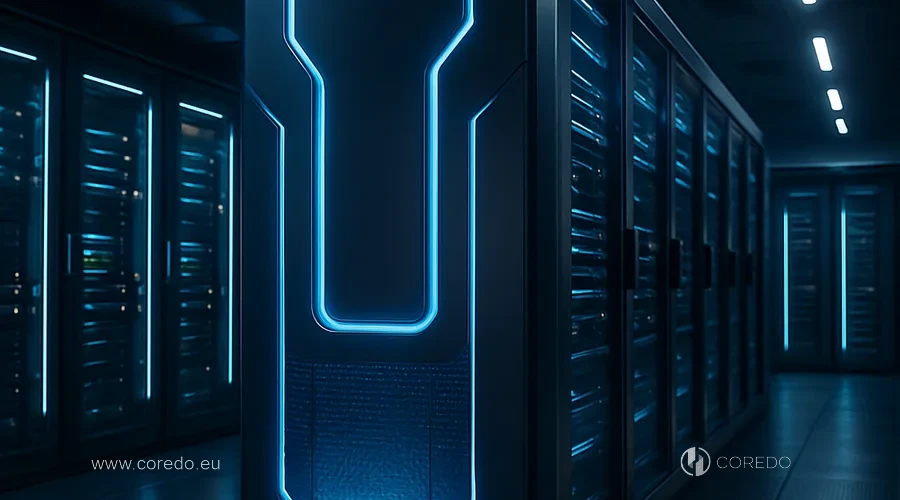In 2024 the Gulf countries invested more than $300 billion in the digital economy, artificial intelligence and Web3: this is more than the annual GDP of several European countries. The UAE and Saudi Arabia are no longer simply testing regulatory sandboxes, they are scaling digital transformation at the level of national strategies, creating a unique business environment for international companies. Over the past three years the COREDO team has implemented dozens of projects for company registration, obtaining financial licenses and supporting digital initiatives in the region, and we see: the pace of change and the depth of technology integration here surpass global trends.
Why should international business now take a close look at the “digital sands” of the UAE and Saudi Arabia? Because new rules of the game are being formed here: access to advanced computing capacity, a transparent regulatory environment, unique tax incentives and comprehensive support for tech companies. But along with opportunities the challenges grow: from complying with AML requirements to managing digital identity and protecting data in megaprojects.
In this article I will analyze in detail the strategies, cases and practical solutions that the COREDO team applies when supporting international clients at every stage of their digital journey. Read to the end — here you will find not only answers to current questions, but also strategic ideas for growing your business in the region.
Digitalization of the UAE and Saudi Arabia

The Saudi Vision 2030 and UAE Centennial 2071 strategies: these are not just plans for economic diversification, but roadmaps for a complete departure from oil dependence through the development of the digital economy, artificial intelligence, biotechnology and the data economy. The solution developed by COREDO for clients includes a deep analysis of these programs and their impact on the corporate environment.
Saudi Vision 2030 provides for the creation of new sectors — from cloud computing to biotechnology and PropTech, as well as the integration of digital platforms for business. UAE Centennial 2071 emphasizes sustainable development through technology, strategic planning of the digital economy and the formation of innovation hubs. COREDO’s practice confirms: participation in government digitalization programs opens access to grants, accelerators, tax incentives and partner networks, which is critical for rapid market entry.
Thus, integration into government digitalization programs becomes an integral part of the strategy of companies seeking to operate in the region’s new markets — which is directly related to issues of digital sovereignty in the Gulf countries.
Digital sovereignty in the Gulf countries
The UAE and Saudi Arabia are striving for digital sovereignty, minimizing dependence on foreign cloud platforms and creating their own computing capacities. The deployment of national language models (Falcon LLM), the development of supercomputer clusters and distributed ledgers (DLT) allow companies to control data, ensure security and comply with local regulatory requirements.
The COREDO team has implemented projects to integrate cloud technologies and build digital infrastructure for startups, which enabled clients not only to protect digital identity but also to increase transparency of business processes. In the context of globalization, digital sovereignty becomes the key factor of resilience and competitiveness.
Supercomputers of the UAE and Saudi Arabia: investments and infrastructure

Over the past two years the UAE and Saudi Arabia have invested billions of dollars in purchasing computing capacity: GPUs, NVIDIA H100 chips, GB300, Blackwell, as well as creating Condor Galaxy supercomputers and partnering with Cerebras Systems. These investments form the foundation for AI, Web3 development and startup scaling.
Solutions developed at COREDO include analysis of the possibilities of using supercomputer infrastructure for international companies: from launching neural networks for business to automating business processes and building digital platforms. International partnerships in AI and Web3 are another growth driver: participation in joint R&D centers provides access to unique technologies and reduces development costs.
Falcon LLM and language models for business
The creation of national language models, such as Falcon LLM,, is a strategic step toward independence and customization of AI solutions for regional business. COREDO’s experience has shown that localizing neural networks for industry-specific tasks (finance, real estate, logistics) allows clients not only to increase efficiency but also to ensure compliance with the national artificial intelligence strategy.
The implementation of neural networks for business is not just automation, but a transition to personalized services, data management in megaprojects and the integration of AI into the corporate sector. Examples from practCOREDO’s case studies demonstrate how national LLMs speed up the processing of legal documents, optimize AML procedures and increase the transparency of financial flows.
IT workforce: golden visa and training of the future

The UAE and Saudi Arabia are forming a global hub of tech talent, attracting specialists through the golden visa, Premium Residency programs and investments in education. The MBZAI University of Artificial Intelligence and the KAUST center for fundamental research are key elements of this ecosystem.
The COREDO team assisted clients in obtaining golden visas for IT specialists, allowing them to legally work and develop businesses in the region. Talent programs include not only benefits for specialists but also future accelerators in Dubai, where startups gain access to digital infrastructure, cloud technologies and expert support.
Reverse brain drain in Dubai
Reverse brain drain, a unique phenomenon when talented specialists return or move to the region thanks to attractive conditions and startup support. Future accelerators in Dubai provide companies not only with financing but also access to supercomputer clusters, IoT infrastructure and Smart Dubai.
COREDO’s practice confirms: participation in accelerators requires meeting high standards: a transparent structure, compliance with AML requirements, and an innovative business model. Comprehensive support during company registration and obtaining financial licenses becomes critically important for a successful launch.
AI and Web3 megaprojects: NEOM, XVRS, UAE

NEOM and XVRS: megaprojects where the integration of artificial intelligence, Web3 and blockchain is changing approaches to infrastructure, city services and investments. As part of the UAE’s digital strategy, projects on metaverses, digital twins and data management through AR/VR interfaces are being implemented.
The COREDO team supported clients in integrating Web3 into government services, which enabled the automation of legal processes, increased transparency and reduced costs. Megaprojects are becoming a testing ground for implementing RWA (real world assets) on the blockchain, tokenizing real estate and creating digital identities for businesses and citizens.
Integration of AI and blockchain for data
Real cases from COREDO’s practice show how artificial intelligence and blockchain are used to manage data in megaprojects, ensure transparency of construction projects and optimize logistics chains. For example, the implementation of blockchain solutions allowed a COREDO client to create a transparent data management system, reduce risks and increase investor confidence.
However, its implementation requires a careful risk analysis, compliance with regulatory requirements and the adaptation of corporate processes.
Blockchain and digital assets in the UAE

Blockchain is becoming an infrastructural layer of the Gulf’s digital economy. The COREDO team has implemented projects on tokenizing real estate in Dubai, launching PropTech solutions and issuing digital bonds on the Abu Dhabi stock exchange. Management of digital assets and regulation of virtual assets (VARA) are key elements of the new financial architecture.
RWA tokenization allows investors to access previously unavailable assets, speeds up transactions and increases transparency. Examples from COREDO’s practice show that blockchain-based PropTech is changing the real estate market, lowering barriers to entry and creating new investment models.
Against this background, regulation of the digital dirham is becoming a crucial factor for financial inclusion and the further development of the industry.
Regulation of the digital dirham and inclusion
The UAE is creating transparent rules for the crypto industry, promoting financial inclusion through digital currencies and the digital dirham. Solutions developed at COREDO include supporting clients in obtaining licenses to manage virtual assets, integrating digital platforms for businesses and complying with AML requirements.
Financial inclusion through digital currencies reduces barriers for small and medium-sized businesses, opens access to international markets and simplifies cross-border payment procedures. It is important to take into account the specifics of virtual asset and cryptocurrency regulation in Dubai to minimize risks and ensure sustainable business development.
Digital transformation in the UAE and Saudi Arabia: risks and solutions
The region’s digital transformation is accompanied by new challenges: cybersecurity, data protection, a talent shortage, control of technology exports and regulatory risks. The COREDO team analyzes the risks of the Gulf’s digital economy and offers solutions: from implementing digital identity management systems to building comprehensive data protection in megaprojects.
For tech companies it is critical to consider tax and legal aspects when launching a business in the UAE and Saudi Arabia: registration rules, licensing requirements, and the specifics of virtual asset regulation. COREDO’s practice shows that strategic planning and comprehensive support at all stages minimize risks and ensure long-term resilience.
Digital transformation of the UAE and Saudi Arabia
The digital transformation of the UAE and Saudi Arabia is not just a technological trend but a fundamental change in the business climate, opening strategic advantages for international companies. The UAE economy is becoming a global innovation hub where strategic digital economy planning is combined with access to unique infrastructure, talent and financial instruments.
COREDO’s experience shows: a successful strategy for scaling a business with anduse of the UAE’s infrastructure includes the registration of a legal entity, obtaining financial licenses, the integration of AI and Web3, digital asset management and compliance with regulatory requirements. It is precisely comprehensive support and deep expertise that enable our clients not only to enter new markets but also to build sustainable competitive advantages in the digital economy of the Persian Gulf.
If you are looking for a reliable partner for company registration, obtaining a license, AML consulting or support for digital initiatives: the COREDO team is ready to offer solutions that meet the highest standards of the region. Your next step in the UAE’s ‘digital sands’ could be the beginning of a new era for your business.